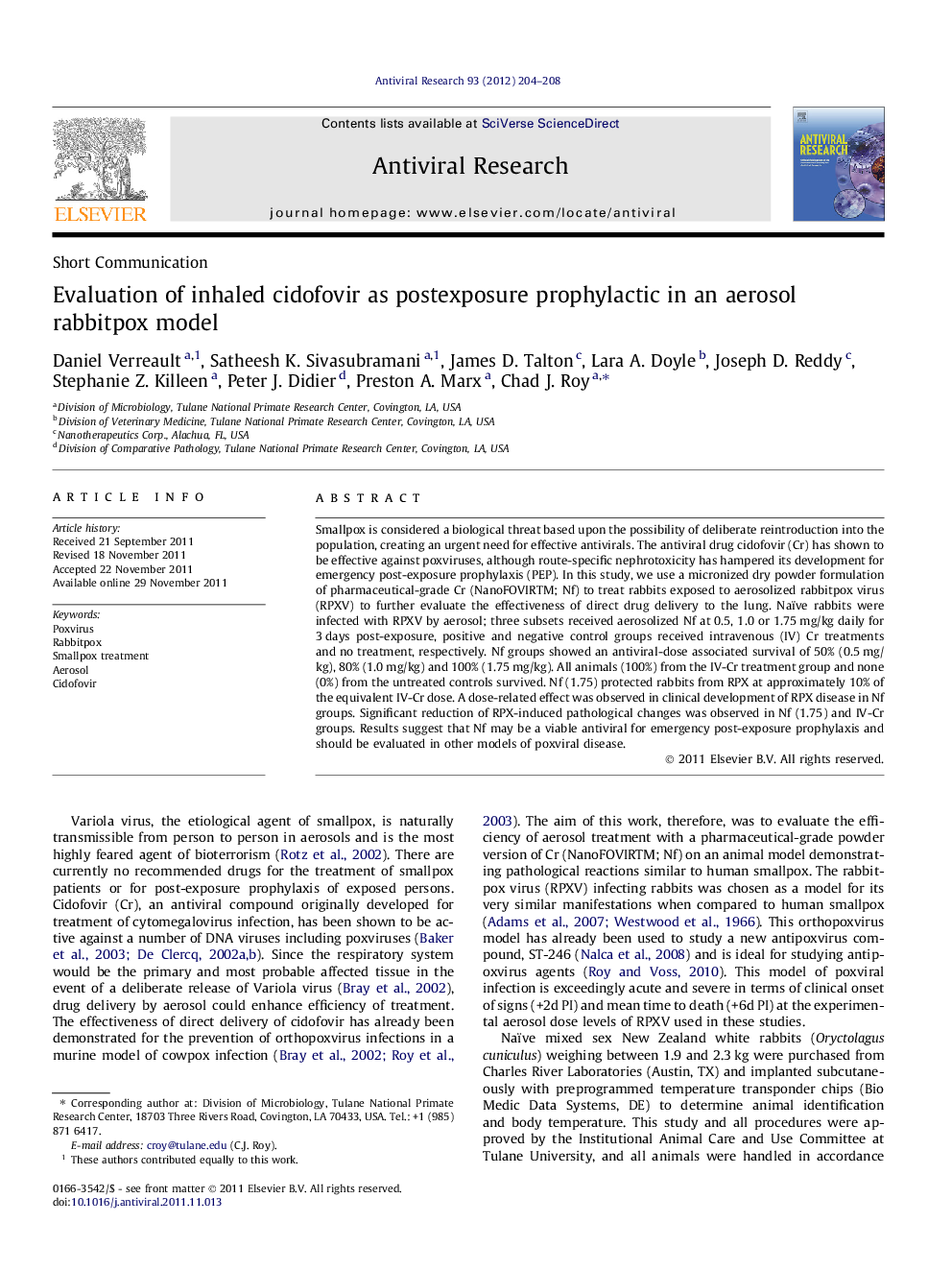| Article ID | Journal | Published Year | Pages | File Type |
|---|---|---|---|---|
| 5822612 | Antiviral Research | 2012 | 5 Pages |
Smallpox is considered a biological threat based upon the possibility of deliberate reintroduction into the population, creating an urgent need for effective antivirals. The antiviral drug cidofovir (Cr) has shown to be effective against poxviruses, although route-specific nephrotoxicity has hampered its development for emergency post-exposure prophylaxis (PEP). In this study, we use a micronized dry powder formulation of pharmaceutical-grade Cr (NanoFOVIRTM; Nf) to treat rabbits exposed to aerosolized rabbitpox virus (RPXV) to further evaluate the effectiveness of direct drug delivery to the lung. Naïve rabbits were infected with RPXV by aerosol; three subsets received aerosolized Nf at 0.5, 1.0 or 1.75Â mg/kg daily for 3Â days post-exposure, positive and negative control groups received intravenous (IV) Cr treatments and no treatment, respectively. Nf groups showed an antiviral-dose associated survival of 50% (0.5Â mg/kg), 80% (1.0Â mg/kg) and 100% (1.75Â mg/kg). All animals (100%) from the IV-Cr treatment group and none (0%) from the untreated controls survived. Nf (1.75) protected rabbits from RPX at approximately 10% of the equivalent IV-Cr dose. A dose-related effect was observed in clinical development of RPX disease in Nf groups. Significant reduction of RPX-induced pathological changes was observed in Nf (1.75) and IV-Cr groups. Results suggest that Nf may be a viable antiviral for emergency post-exposure prophylaxis and should be evaluated in other models of poxviral disease.
⺠An aerosolized form of cidofovir protects rabbits from aerosol rabbitpox challenge. ⺠Aerosolized cidofovir provided comparable protection at a fraction of the IV therapeutic dosage. ⺠Aerosolized treatment significantly reduces lung viral load and corresponding pathology associated with RPX disease.
